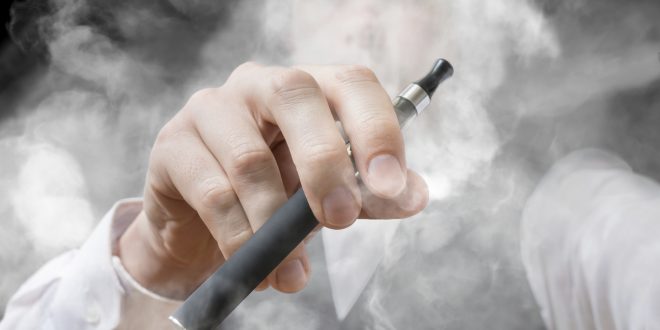Attorney General Todd Rokita announced today that e-cigarette maker JUUL Labs Inc. will pay Indiana more than $15.7 million to settle allegations that the company deliberately marketed its products to minors despite the unlawfulness of selling e-cigarettes to children or adolescents.
“My team and I fight daily to protect Hoosiers from improper business practices that put families at risk,” Attorney General Todd Rokita said. “Wrongful actions that jeopardize children are especially repugnant and shameful. Fortunately, the money we have recovered in this settlement can go toward safeguarding the same young people targeted by the unethical marketing strategies employed by JUUL.”
Indiana’s funds are intended to be used in support of prevention, education, harm reduction and mitigation efforts related to youth using electronic nicotine delivery systems, which include the products commonly known as vapes.
Indiana is one of 32 states participating in a larger agreement under which JUUL will pay out nearly $435 million.
JUUL has an option to pay over 6-10 years — with the total payout increasing the longer it takes to pay. If JUUL chooses a 10-year option, Indiana’s amount would exceed $17.1 million. JUUL’s first payment to Indiana will be $1,478,665 — due Dec. 31, 2022. All additional payments are due on Dec. 31 each year.
In 2019, Indiana joined a multistate investigation into JUUL’s activities. That investigation revealed, among other things, that:
- JUUL directed its marketing at youth by using a hashtag marketing strategy and “influencers” with a large youth following on social media platforms such as Instagram, Facebook, and Twitter.
- JUUL conducted ad campaigns using high-profile promotions, sampling opportunities and youthful models in trendy clothes and provocative poses.
- JUUL’s physical design of its products, along with its flavor options and less-harsh nicotine salt composition, appealed to youth and addicted a new generation to nicotine.
- JUUL made misleading representations to consumers in the marketing, promotion, and sale of its products, leading consumers to believe that its products did not include nicotine at all or, alternatively, contained a lower concentration of nicotine than they do.
- JUUL failed to adequately verify the age of its buyers and allowed minors to purchase its products.
Indiana alleged that JUUL’s misrepresentations and actions were unfair, abusive, deceptive and in violation of Indiana’s Deceptive Consumer Sales Act (DCSA).
Indiana alleged that JUUL’s misrepresentations and actions were unfair, abusive, deceptive and in violation of Indiana’s Deceptive Consumer Sales Act (DCSA).
Under the agreement, JUUL agrees to:
- refrain from including depictions of persons under the age of 35 in any marketing.
- do no social media advertising except for using testimonials of persons over age 35.
- disclose in all advertising the amount of nicotine in their products.
- no longer provide free samples, sponsorships, product placements, or merchandise sales with their brand name.
- sell no flavored products unless approved by the FDA.
- follow restrictions on product placement in retail stores.
- observe quantity purchase limits on in-store and online purchases.
- participate in specific compliance checks and monitoring for retail stores.






